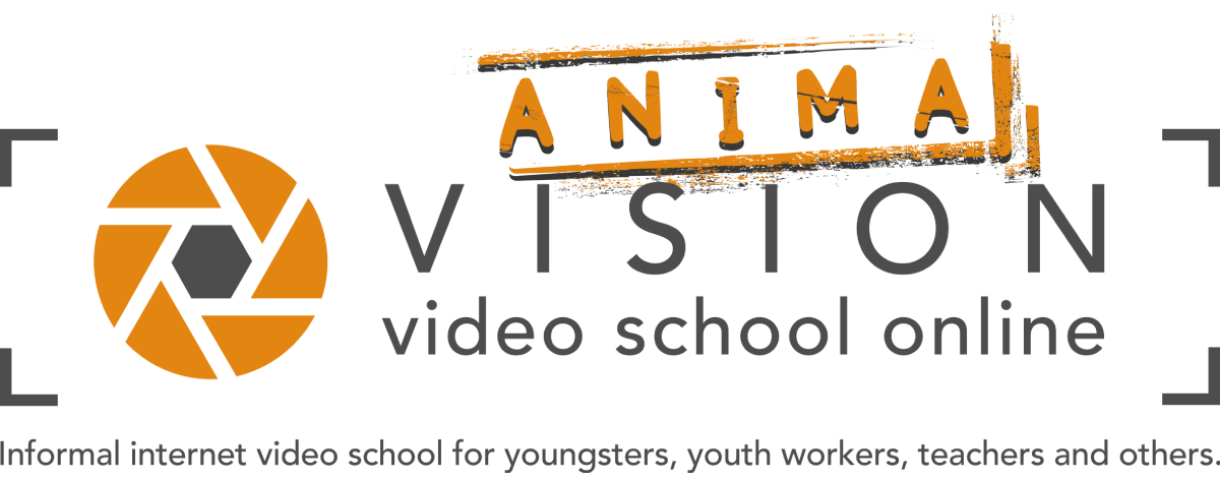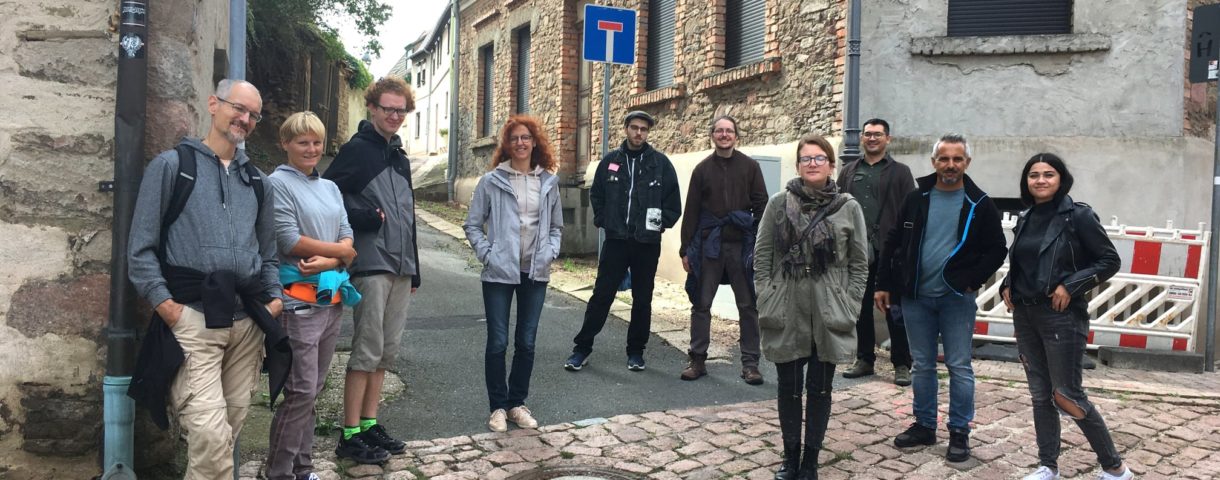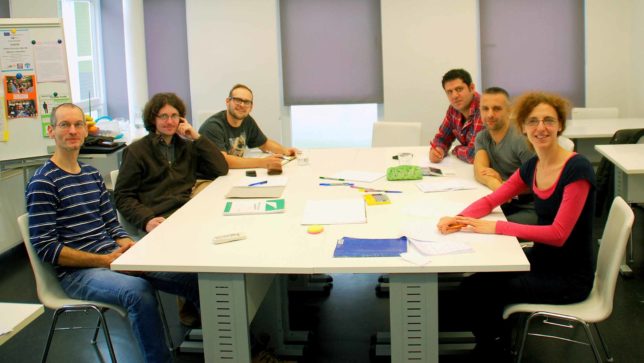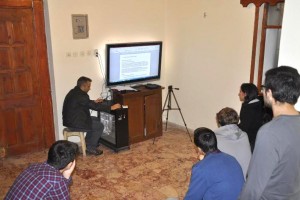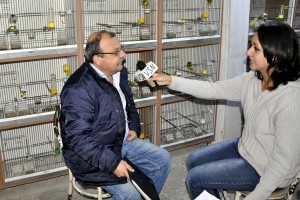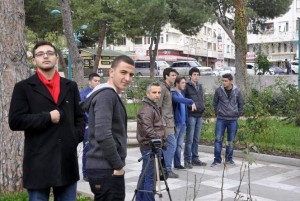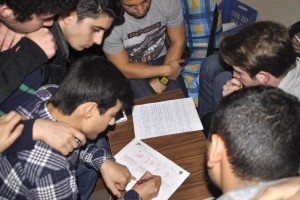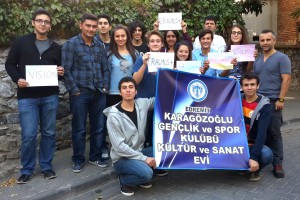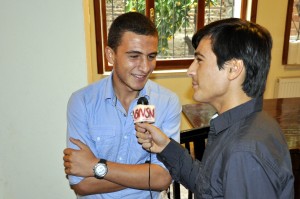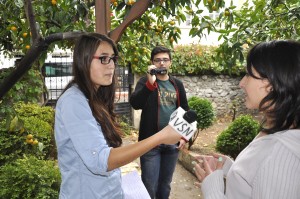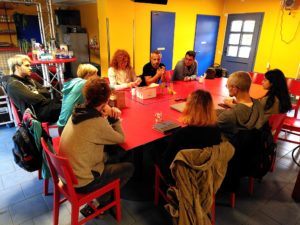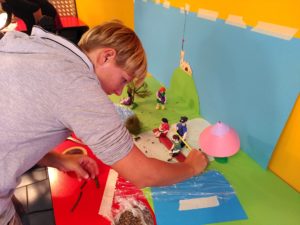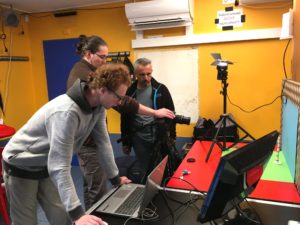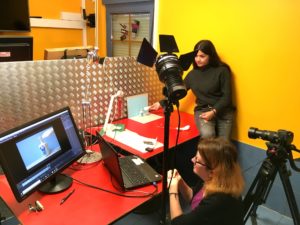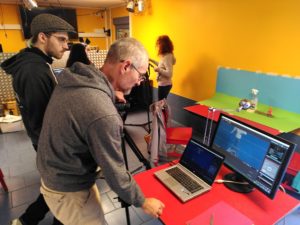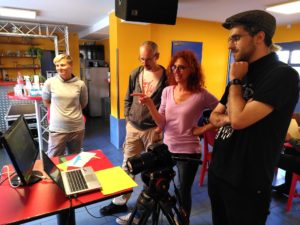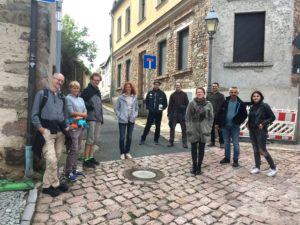Video-making is challenging, rewarding and – above all – fun. It’s the creative process of telling stories, invented or real, so others can see, feel and learn from them. It’s driven by passion and relies on teamwork.
It’s true that today almost anyone can create video, with smart phones, photo cameras with a video mode or simple video cameras. And there are many ways to share video – on YouTube, social networks and open TV channels. But deeper knowledge of video-making can help you share your ideas further, create original content, make your videos better, and even open up opportunities for educational and professional development.
That’s why three organisations from Germany, Slovenia and Turkey came together to set up ‚VISION – video school online‘ – an international project that provides basic knowledge and good-practice examples of video-making. We are passionate about video, and we want to share our many years of experience with a much wider audience.
Our multilingual online guide to video-making is aimed at young people, youth workers, school teachers, non-governmental organizations and associations, as well as anyone else interested in making video. It focuses on creating different types of video, from music videos and short feature films to TV news and documentaries.
We believe everyone should have the opportunity to develop video-making skills, regardless of their geographical, economic or social background. That’s why this guide is free to use and print.
About the guide
The VISION guide to video-making was written, tested and presented to a wide audience between September 2014 and June 2015.
With their experience in video-making and education, the German and Slovenian partners were responsible for writing the content.
The project team at a planning meeting in Slovenia, November 2014
The Turkish partner organisation then worked with young people and a youth worker to test it chapter by chapter and provide feedback.
The three partners came together twice – in Slovenia, to plan the guide at the beginning of the project, and in Turkey, to finalise our work and present it to the public. Throughout the project we communicated online, via email and Skype.
A group of young Turkish people tested the guide through weekly video-making activities
The website that now hosts the VISION guide was our shared workspace. We uploaded the text content ourselves, then illustrated the chapters with photos, diagrams and video material. 2
The guide has already been introduced to young people, youth workers, school teachers and the wider public through specially organised events, existing professional and social networks, leaflets, and our other projects and activities.
And we’re working together to make sure the VISION guide is used even more widely. We plan to build on it through local, regional, national and international activities – including video workshops, youth exchanges, training for mentors and young people – and by providing it in languages beyond English, German, Slovenian and Turkish.
Our motto is: „Film overcomes language, social, economic and geographical barriers!“
The project Vision – video school online was marked on the Erasmus+ project results platform as Good practise example.
Animavision
In the years 2020 – 2022 the VISION guide was upgreaded with the knowledge of stop motion animation and social inclusion of young people with less opportunities through the project ANIMAVISION. – social inclusion of young people with less opportunities through making animated films. It was again an international strategic partnership project of three organizations from three different countries (Germany, Slovenia and Turkey). Main objective of the project was to develop a new method of inclusion of young people with less opportunities, test it with young people in praxis and publish it publicly on the web site of the video school Vision (www.vision-videoschool.eu) in four different languages.
In our organisations and in our networks we noticed that we still don’t possess enough knowledge on recognising, accessing and including young people with less opportunities in our environment and including them in different activities. All participating organisations are active in the field of media education so we decided to develop a method from this field.
In the project we organised three different trainings for youth workers where they gained knowledge on recognising, accessing and including young people with less opportunities and on making animated films. The knowledge was tested with groups of young people with less opportunities in all three participating countries. During the project an intellectual output was made – 11 new chapters that are now published on the web site of video school Vision. They are published free of charge in 4 different languages. The project included more then 10 youth workers and more then 90 young people with less opportunities from three different countries.
The new knowledge was already (an will be more in the future) introduced to young people, youth workers, school teachers and the wider public through multiplier events and the Vision web site locally, regionally, nationally and internationally. New knowledge will stay available online also after the conclusion of the project free of charge for all interested.
Photogallery from the one training for youth workers that took place live in Germany. Other two took place on-line due to coronavirus outbreak in 2020
Project team, partner organizations and contacts
Project team VISION
Project team: Matej Žibert (SI), Mia Brunej (SI), Martin Kahles (DE), Eugen Timm (DE), Sertan Ay (TR), Mete Misir (TR)
Preparation of content: Matej Žibert (SI), Mia Brunej (SI), Martin Kahles (DE), Sander Luecken (DE), Jens Rudolph (DE), Sertan Ay (TUR)
Proofreading: Marjana Florjan, Denny Vlaeva
Turkish test group: Sertan Ay (youth worker) and Erkan Avci, Furkan Diler, Fatih Yilmaz, Kuzey Yalcin, Veli Tascinten, Berker Oguz, Naciye Erol, Tutku Yayman, Pinar Ozkaya, Cengizhan Aksoy and Cengizhan Aksoy (participants).
Partner organizations VISION
LIJAmedia – Magičnost ustvarjanja, Zavod za ustvarjanje in izobraževanje – Slovenia
WTV – Der offene Kanal aus Wettin e.V. – Germany
KARAGOZOGLU ILKOGRETIM OKULU GENCLIK VE SPOR KULUBU – Turkey
https://www.karagozogluspor.com/
Project team ANIMAVISION
Project team: Matej Žibert (SI), Mia Brunej (SI), Martin Kahles (DE), Sertan Ay (TR), Ramazan Derin (TR)
Preparation of content: Matej Žibert (SI), Mia Brunej (SI), Andreja Petan (SI), Martin Kahles (DE), Sander Luecken (DE), Jens Rudolph (DE), Sertan Ay (TR), Ramazan Derin (TR)
Proofreading: Erna Androjna, Anastasiia Ryvkina
Partner organizations ANIMAVISION
LIJAmedia, Zavod za medijsko ustvarjanje in izobraževanje – Slovenia
WTV – Der offene Kanal aus Wettin e.V. – Germany
Ülkü Muharrem Ertaş Anadolu Lisesi – Turkey
https://ulkumuharremertas.meb.k12.tr/
Vision and Animavision project were co-funded by the European Union. This project has been funded with the support of the European Commission. This guide reflects the view only of the author and the Commission cannot be held responsible for any use of the information contained therein.
This project has been funded with the support of the European Commission. This guide reflects the view only of the author and the Commission cannot be held responsible for any use of the information contained therein.
